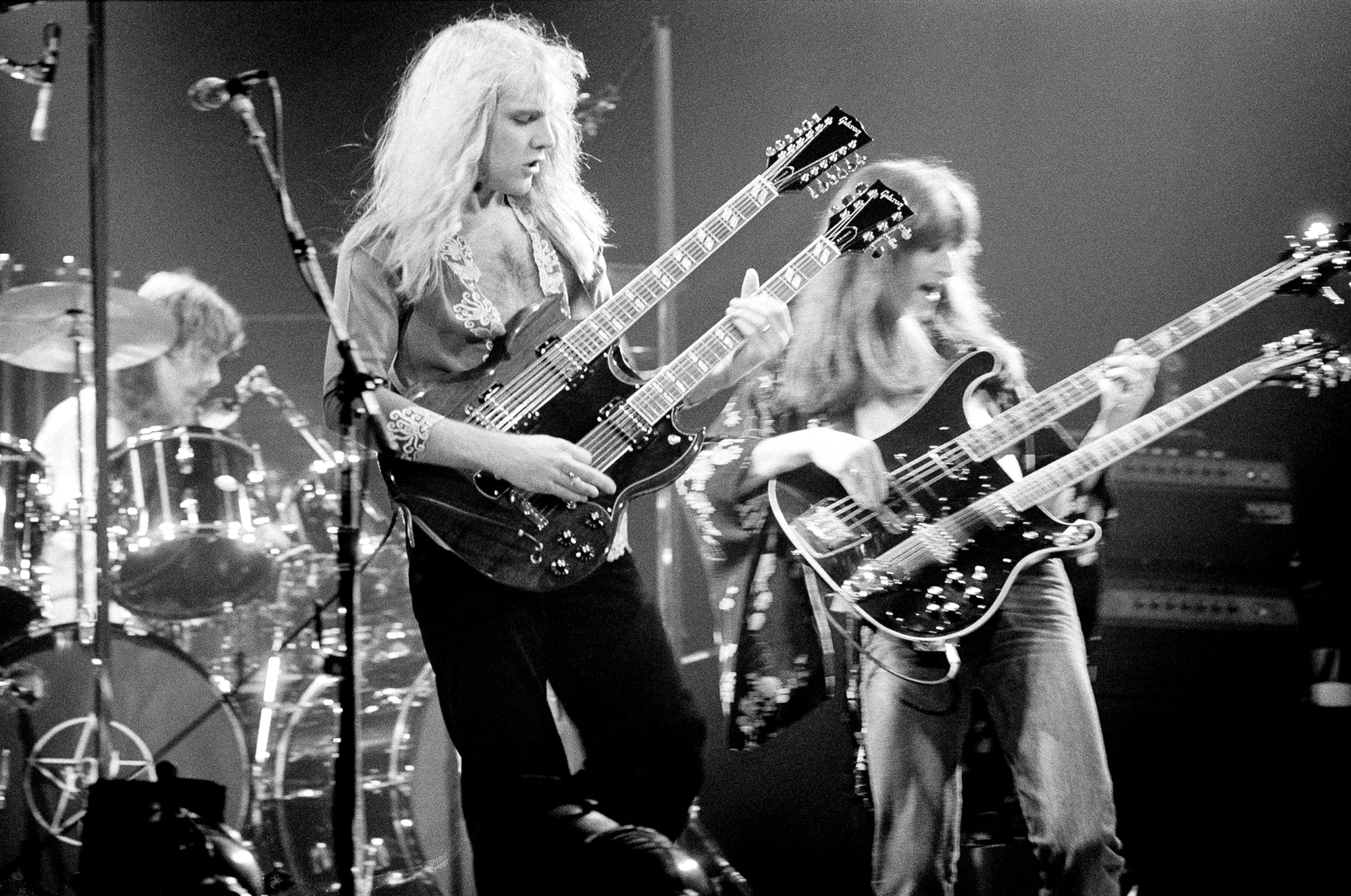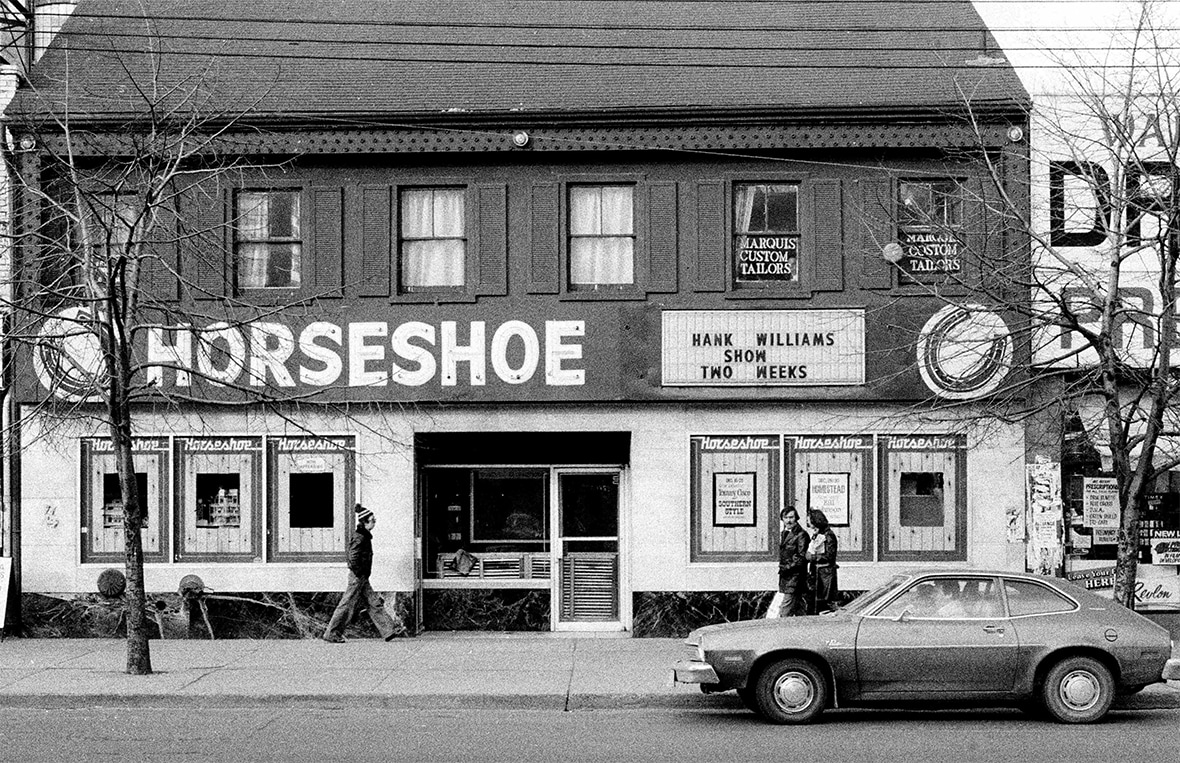
Formed by two Toronto musicians, Brendan Canning and Kevin Drew, Broken Social Scene ebbs and flows.
With up to 19 members featured in live or recorded performances, the group doesn’t fit neatly into the category of cohesive band. Broken Social Scene may be more easily described as a musical collective: with new musicians plugging in to play for a few songs before departing to pursue their own individual musical projects.
Joined together through life-long friendships, occasional romances, and enduring artistic respect, Broken Social Scene is a Toronto jam session made real.
Nowhere But Toronto
Maybe it wasn't fate that brought Broken Social Scene (BSS) together but inevitability. Whether it was going to high school music class together or working as gigging musicians, members of Broken Social Scene found in each other a shared love of music.
Founding member Kevin Drew attended the Etobicoke School for the Arts in the 1980s, meeting future Broken Social Scene members Emily Haines and Amy Millan.
This girl came up to me and said, “Are you looking for the music class”? I said, “Yeah.”
She said, “Me too. Are you new?” “Yeah.” “Me too.”
And that was Emily Haines.
—Amy Millan, "This Book Is Broken", 2009
During the 1990s, many of the future members of Broken Social Scene were hard-working musicians in Toronto, looking for the right scene, the right band, the right audience, or the right venue that would take their music to the next level.
Brendan Canning spent the 1990s in several bands, fronting the alternative rock band hHead with Noah Mintz (who would go on to master several BSS albums) and later playing with future-BSS member Leslie Feist in the indie rock band By Divine Right.
By playing at local Toronto venues like the Horseshoe Tavern or Ted's Wrecking Yard, future members of BSS learned about each other's music.
The whole idea of going into the basement and playing with friends just for the joy of it was a big part of what happened later for the Broken Social Scene.
— Jason Collett, member of Broken Social Scene
Listen: Feel Good Lost
Although both founding members, Brendan Canning and Kevin Drew, were playing in other bands during the mid to late 1990s, they knew of and respected each other’s work.
By 2000, Canning and Drew were spending their nights and weekends in the basements of Drew’s Gladstone Avenue apartment, putting together what would be the first album of Broken Social Scene: Feel Good Lost. This largely instrumental first album by Broken Social Scene was released in March 2001.
This online exhibition uses third-party applications including Spotify and YouTube. Check with your organization’s web administrator if you are unable to access content from these channels in the exhibition.
Ted's Wrecking Yard
In the early 2000s, there was a wave of new energy to promote independent music in Toronto. That wave was focused on 549 College Street. Opened in 1997 by Ted Footman, the venue offered two floors of music, Barcode on the main floor with Ted’s Wrecking Yard above. Although Barcode offered jazz and swing, the upstairs Wrecking Yard was a grittier space: painted black with wooden floors.
Ted’s became a haven for indie music in Toronto by 1999, hosting a weekly music showcase known as Wavelength (now an annual Toronto concert festival).
The venue also witnessed the debut of Broken Social Scene. Only a few months before the release of BSS’s first album, Kevin Drew took to the Ted’s Wrecking Yard stage in December 2000, performing as John Tesh Jr. and the Broken Social Scene, the first-ever public appearance of the group’s name.
In October 2001, Ted’s Wrecking Yard abruptly closed. It was a bad year for live music in Toronto, with live music at the El Mocambo also shuttering after a change in ownership. Although teams from both venues tried to keep hosting live shows in the downstairs Barcode space on College Street, the collaboration didn’t last.
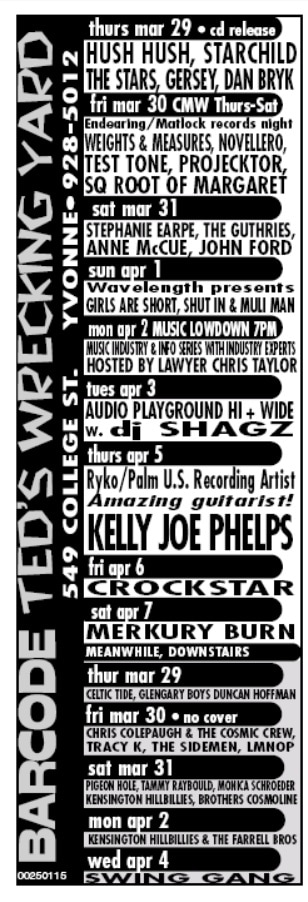
A sample of a week’s worth of music on offer at Ted’s Wrecking Yard and Barcode in early 2001, featuring the weekly indie music showcase Wavelength. Note the reference to Yvonne on the ad, a reference to Yvonne Matsell, the booker credited with transforming Ted’s Wrecking Yard to the hub of indie live music in Toronto.
Courtesy of Now Magazine, March 21, 2001
Listen: Booking Music At Ted's Wrecking Yard
Legendary Toronto music booker Yvonne Matsell transformed Ted's Wrecking Yard as a hub for live music in Toronto in the late 1990s and early 2000s. Listen to her discuss her connections with Broken Social Scene and how the band's friendships and connections helped them on the road to international success.
This online exhibition uses third-party applications including Spotify and YouTube. Check with your organization’s web administrator if you are unable to access content from these channels in the exhibition.

Recorded for Heritage Toronto, 2019.
View TranscriptYvonne Matsell: Hi, my name is Yvonne Matsell and I've been a booker of numerous clubs in Toronto, and I’ve had a history with many Canadian acts.
The last club before the El Mo was Ted's Wrecking Yard. So I went to take a look at the venue and it was again, another small venue held about 200 people. And it was very gritty and he had a restaurant downstairs that seemed to be not doing too well.
So again, you know, I've got a clean slate to start. Um, and Ted loved music, and, uh, I got him to change the PA. That's my usual modus operandi. Get a new PA and get my sound guys because I trust my sound guys to do a good job.
And, um. Anyway, it worked. You know, it seemed that that was the community area that a lot of musicians lived in and they wanted somewhere new to play and they came at me like crazy.
Broken Social Scene started coming to me. They were a brand new band and Kevin Drew, the singer, used to be one of my students when I taught at Harris school. So we already had a friendship. He was telling me about what his plans were with this new band and he put it great show together one night. So he was really shy on stage. He had his back to the audience.
I found that really amusing because he was so gregarious as a person. The place was full because there was so many good musicians in the band that all had friends. But they, uh, they were able to pull in a great crowd. And it just began to be as a thing, you know, it was a really cool time.
Leslie Feist would come and play. They were friends with her. It just sort of developed. Bands seemed to just grow out of another band. They're lovely. It was like a camp of a school kids camp, but only grownups. There was so many people who were friends in the band.
They were all amazing musicians. It was almost like a revolving door sometimes, you know, you never knew who was going to actually get up and play with them and they were just doing something unique at that time and, and people just were drawn to them.
And it grew very quickly, so quickly that within a very short space of time, they were moving on to bigger venues because they suddenly got an agent and you know, people could see that the band was starting to happen.
If we do well, it’s going to be because of Toronto. It’s going to be because of all the support we got here.
— Kevin Drew, Toronto Star, December 12, 2002
This online exhibition uses third-party applications including Spotify and YouTube. Check with your organization’s web administrator if you are unable to access content from these channels in the exhibition.
Listen: KC Accidental
Broken Social Scene may have started with two members, but its ranks quickly grew. Whenever performing, whether at Ted’s Wrecking Yard or at the Horseshoe Tavern, Brendan Canning and Kevin Drew regularly welcomed their friends and fellow musicians on stage to play as part of the band. Their open-door policy and musical camaraderie transferred to the recording studio. On Broken Social Scene’s next and breakthrough album, You Forgot It In People, released in October 2002, fifteen musicians and other musical contributors were listed on the album’s liner notes. The album won the 2003 JUNO Award for Best Alternative Album.
Listen to Broken Social Scene’s song "KC Accidental" from their 2002 album. The album marked the band’s breakout commercial success, making them a household name in Canada and the United States.
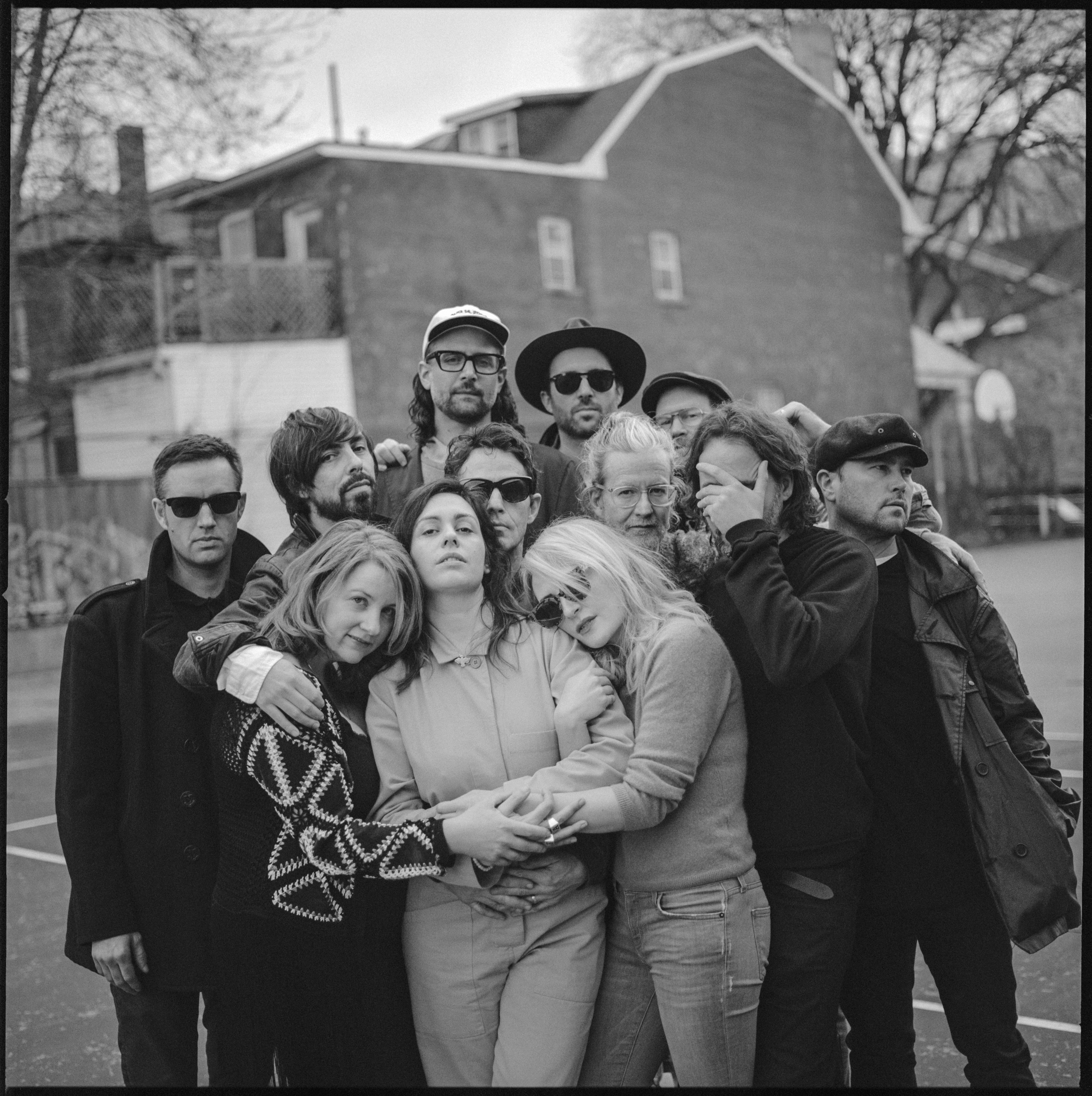
Members of Broken Social Scene in 2017.
Photo by Norman Wong
We are friends first, then bandmates. That has always been our ethos, and is what allows us to keep our sanity.
— Brendan Canning, 2008
Watch: Brendan Canning at the Masonic Temple
Watch Brendan Canning visit 888 Yonge Street, the location of a legendary music venue in Toronto known variously as the Concert Hall, the Rockpile, and the Masonic Temple. Canning discusses his early memories of going to concerts in Toronto and how he was able to open for headlining bands with a little detective work and a phone line. Canning also discusses the importance of friendship in music, a belief that underpins the collaborative nature of Broken Social Scene.
This online exhibition uses third-party applications including Spotify and YouTube. Check with your organization’s web administrator if you are unable to access content from these channels in the exhibition.

Video directed and produced by Brendan Hannahson. Filmed at 888 Yonge Street. Music by Brendan Canning.
View Transcript[Music]
Brendan Canning: Herbie, this way.
Yeah, lots has changed. I mean there wasn’t The Vaper Store. And uh, pretty sure those condos weren’t there. Pretty sure those condos weren’t there. Masonic Temple always stays there though. 888. You want to cross?
My first Toronto gig was where I’m sitting, which was Motörhead and Helix. You’re 13, living in the suburbs, and you see a long line of mostly people in leather jackets. I remember the attendance was actually 564, because I read the review in the paper and I was like “oh, it’s an 1800 cap venue”, I was thinking about numbers back then.
Now Magazine used to be my bible. When I was starting off in my first band, hHead, with two H’s. I’d pick up a copy of Now Magazine and go to immediately to “Gigs Announced” and then I’d pick up the phone and call Elliot Lefko to find out if my band could get on the bill for Dinosaur Jr. or Stone Temple Pilots, or the Lemon Heads, or My Bloody Valentine. All these iconic bands I had the chance to play with in the early days.
You can’t put your finger on what works about a band. When we were making Feel Good Lost, we’d run into my friend at the grocery store, and say “oh, don’t you play harmonica? Why don’t you come up, we’re just recording on an 8-track in Kevin’s basement.” It’s kind of an all-encompassing thing with collaboration, and it’s also always rooted in friendship before a band.
Work with people who inspire you and get yourself in situations that are inspiring. If it feels real and it feels like it’s something, then it should be motivating.
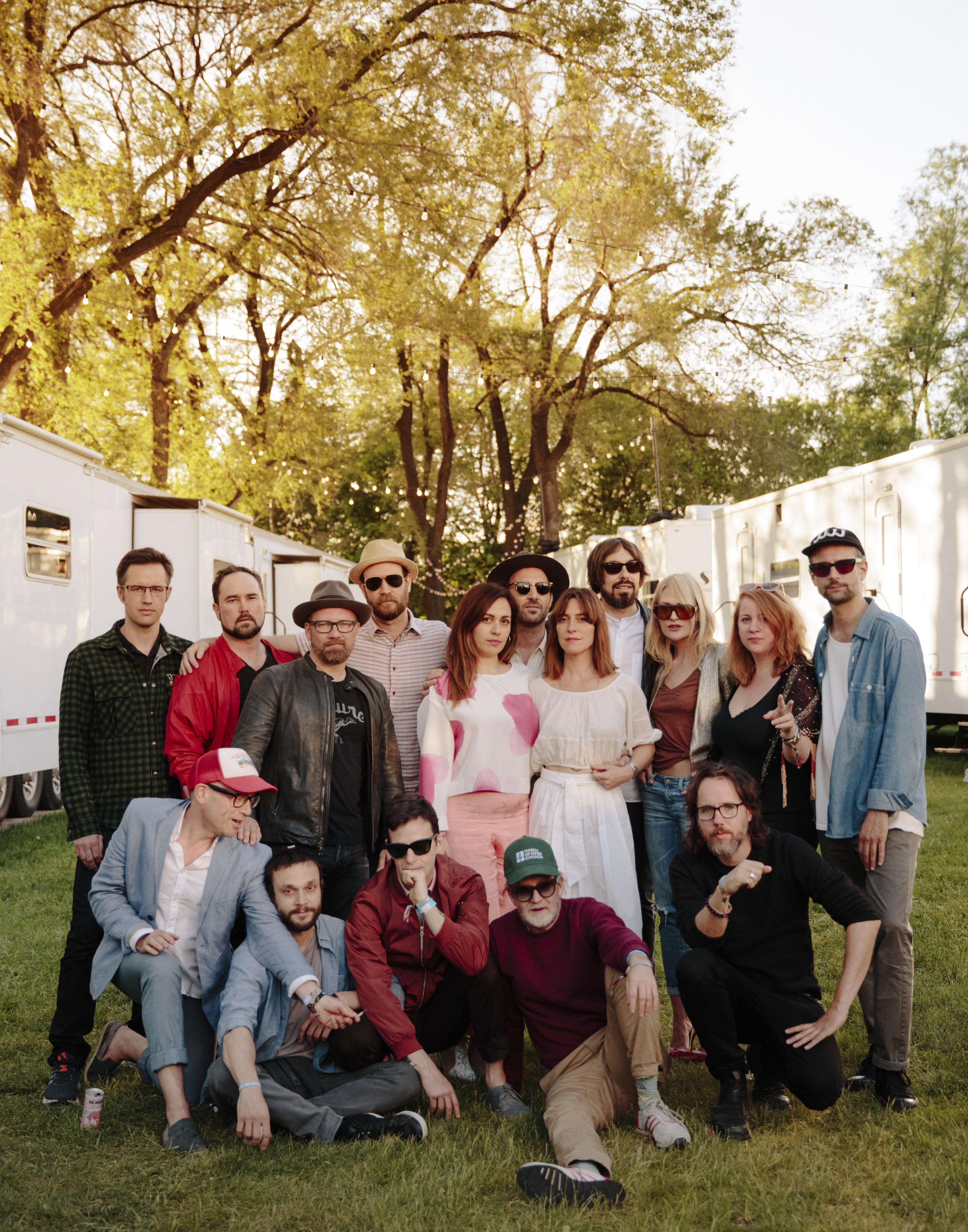
A collection of many (but not all) of the members of Broken Social Scene in 2017.
Photo by Norman Wong
Touring
Although Broken Social Scene achieved critical and financial success with their 2002 You Forgot It In People and their follow-up album Broken Social Scene in 2005, the band’s collaborative and informal structure made the group uniquely suited for live performances.
Broken Social Scene was frequently on tour during the mid-2000s, but you never knew who you might see on stage on any given night. The band’s lineup changed often as members took breaks to pursue their own projects and solo careers.
Even with international touring, the band always returned to Toronto, often playing the same small venues they had when just starting out in their music careers.
Honours & Awards
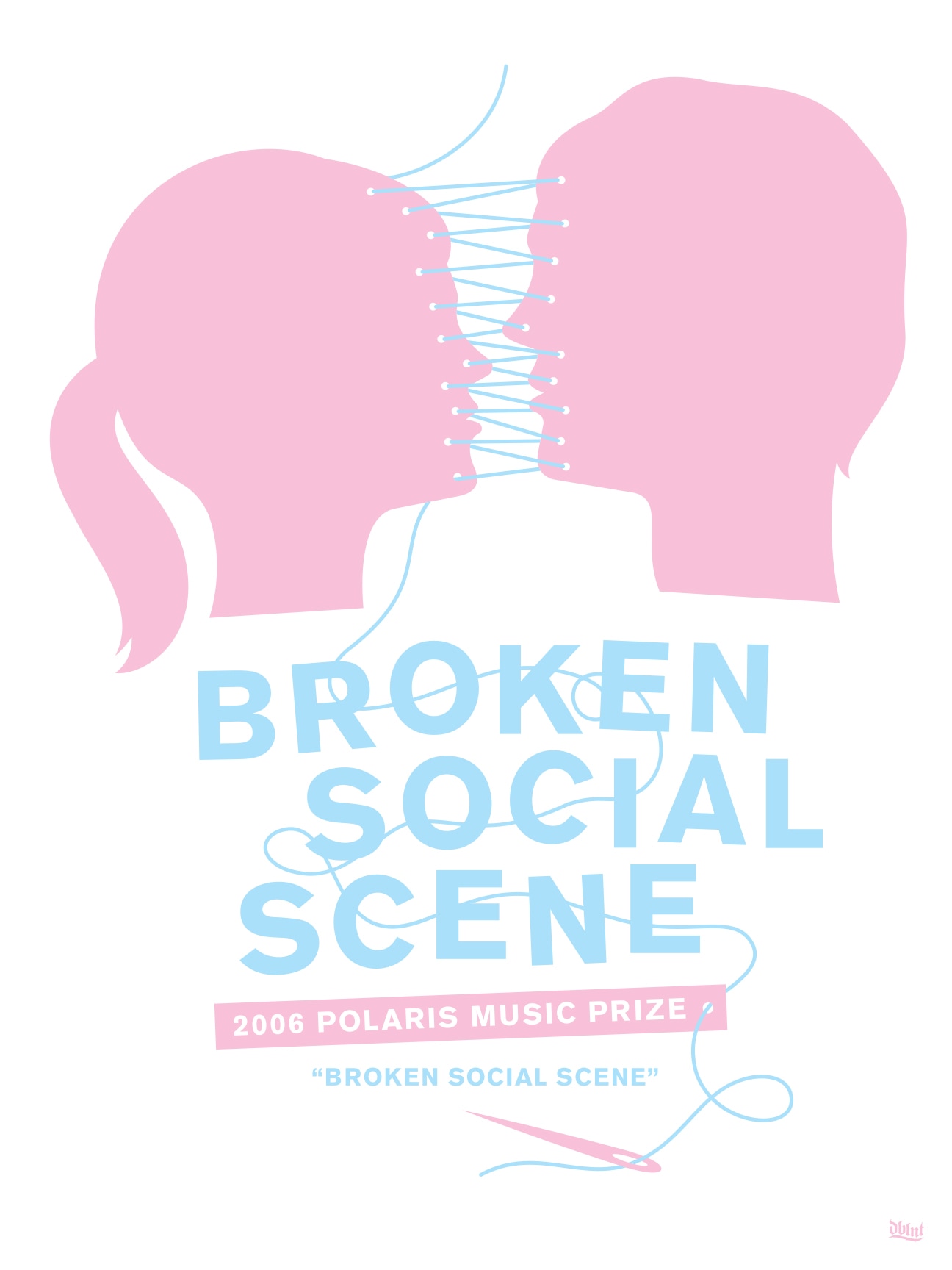
In 2006, Broken Social Scene was nominated for their self-titled album “Broken Social Scene” for the inaugural year of the Polaris Prize, honouring creativity in Canadian recorded music. Image by Matt McCracken
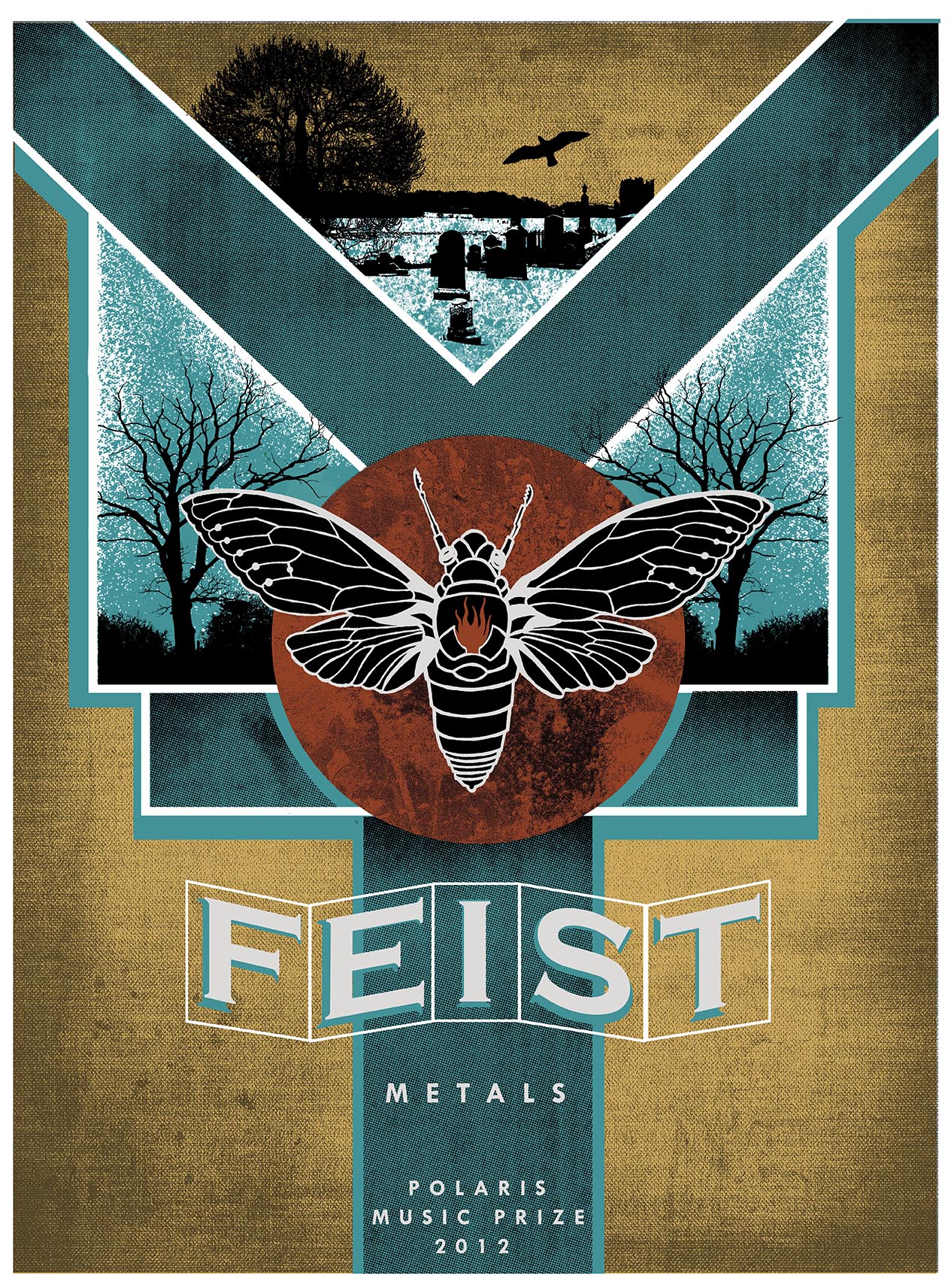
Six years later, long-time Broken Social Scene member, Leslie Feist won the 2012 Polaris Prize for her album “Metals.” Image by Pat Hamou
If Broken Social Scene albums sound like compilations, it’s because the band members are an amalgam themselves: their myriad solo careers and satellite bands — Stars, Metric, Feist, Apostle of Hustle, Do Make Say Think, Raising the Fawn, Jason Collett — each represent discrete, disparate components of the band’s wall of sound.
— Stuart Berman, "This Book Is Broken", 2009
Watch: Love Is New
Several of Broken Social Scenes's music videos have featured Toronto's skyline as well as its buildings and people. When Brendan Canning released his solo album, Something for All of Us... in 2008, the first music video from the album, "Love Is New", was a tribute to the Toronto streets he knew and loved. The style of the video is a homage to the famous opening scene of New York City from the 1977 film Saturday Night Fever, with Canning's version featuring a 1970s version of Toronto's Kensington Market.
This online exhibition uses third-party applications including Spotify and YouTube. Check with your organization’s web administrator if you are unable to access content from these channels in the exhibition.

See if you can spot some of the cameos by Broken Social Scene members throughout the video for "Love Is New". Directed by Shelley Lewis. Courtesy of Broken Social Scene. Please note: this third-party video does not provide closed captions.
View TranscriptIt was a time
Or a place
That you made
We already knew
About the way
You're living
This point in space
Where you find
Your target
Your instrument
Is your choice
Of weapons
Oh, love is new
Oh, love is new
Can you explain
All the finer
points of view?
Discriminate
Or make some friends
Who can lend us money
It was a time (I can't jump in, I'm here when I'm alone)
Or a place that you made (I can't jump in, I'm here when I'm alone)
It's a point in space, (I can't jump in, I'm here when I'm alone)
The way you're living (I can't jump in, I'm here when I'm alone)
Oh, love is new
Oh, love is new
It's a point in space (I can't jump in, I'm here when I'm alone)
It's a point in space (I can't jump in, I'm here when I'm alone)
There was a time (I can't jump in, I'm here when I'm alone)
Or a place that you made (I can't jump in, I'm here when I'm alone)
Oh, love is new
Oh, love is new
I am mid-way through my third decade of making music in Toronto and can honestly say this city has been a gift. I have played in loads of bands in this town, drank in many bars, and played everywhere from Air Canada Centre to Sneaky Dee's. This city continues to give back with so much incredible talent so that I can find inspiration to do what I do.
— Brendan Canning
Dive Deeper
Official Website of Broken Social Scene
The Broken Social Scene Short Story Project: Short Works Inspired By You Forgot It In People. Toronto: House of Anansi Press, 2013.
Stuart Berman. This Book Is Broken: A Broken Social Scene Story. Toronto: House of Anansi Press, 2009.

